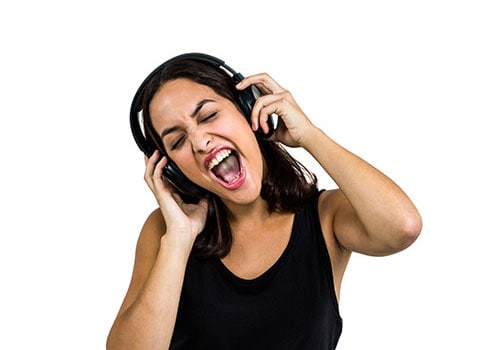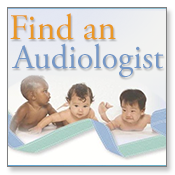Preventing Noise-Induced Hearing Loss

Hearing plays an essential role in communication, speech and language development, and learning. Even a small amount of hearing loss can have profound, negative effects on speech, language comprehension, communication, classroom learning, and social development. Studies indicate that without proper intervention, children with mild to moderate hearing loss, on average, do not perform as well in school as children with no hearing loss. This gap in academic achievement widens as students progress through school.1,2
An estimated 12.5% of children and adolescents aged 6–19 years (approximately 5.2 million) and 17% of adults aged 20–69 years (approximately 26 million) have suffered permanent damage to their hearing from excessive exposure to noise.3,4
Hearing loss can result from damage to structures and/or nerve fibers in the inner ear that respond to sound. This type of hearing loss, termed “noise-induced hearing loss,” is usually caused by exposure to excessively loud sounds and cannot be medically or surgically corrected. Noise-induced hearing loss can result from a one-time exposure to a very loud sound, blast, or impulse, or from listening to loud sounds over an extended period.
Hearing loss caused by exposure to loud sound is preventable.5 To reduce their risk of noise-induced hearing loss, adults and children can do the following:
- Understand that noise-induced hearing loss can lead to communication difficulties, learning difficulties, pain or ringing in the ears (tinnitus), distorted or muffled hearing, and an inability to hear some environmental sounds and warning signals
- Identify sources of loud sounds (such as gas-powered lawnmowers, snowmobiles, power tools, gunfire, or music) that can contribute to hearing loss and try to reduce exposure
- Adopt behaviors to protect their hearing:
- Avoid or limit exposure to excessively loud sounds
- Turn down the volume of music systems
- Move away from the source of loud sounds when possible
- Use hearing protection devices when it is not feasible to avoid exposure to loud sounds or reduce them to a safe level5
- Seek hearing evaluation by a licensed audiologist or other qualified professional, especially if there is concern about potential hearing loss
Learn more: Loud Noise Can Cause Hearing Loss
Resources
National Institutes of Health: Hearing in Children Activities
It’s a Noisy Planet. Protect Their Hearing.
Kids and teens are often exposed to noise levels that could permanently harm their hearing over time. Learn about the causes of noise-induced hearing loss and how to prevent it, so your kids—and you—can have healthy hearing for life.
- American Speech-Language-Hearing Association. Effects of Hearing Loss on Development. Rockville, MD: American Speech-Language-Hearing Association.
- Bess FH, Dodd-Murphy J, Parker RA. Children with minimal sensorineural hearing loss: prevalence, educational performance, and functional status. Ear and Hearing 1998;9:339–354.
- Niskar AS, Kieszak SM, Holmes AE, Esteban E, Rubin C, Brody DJ. Estimated prevalence of noise induced hearing threshold shifts among children 6 to 19 years of age: The third national health and nutritional examination survey. 1988-1994, United States. Pediatrics 2001;108:40–43.
- National Institute on Deafness and Other Communication Disorders. Quick Statistics. Bethesda, MD: U.S. Department of Health and Human Services; August 2008.
- National Institute on Deafness and Other Communication Disorders. Noise Induced Hearing Loss. Bethesda, MD: April 2007. NIH Pub No. 97-4233.
